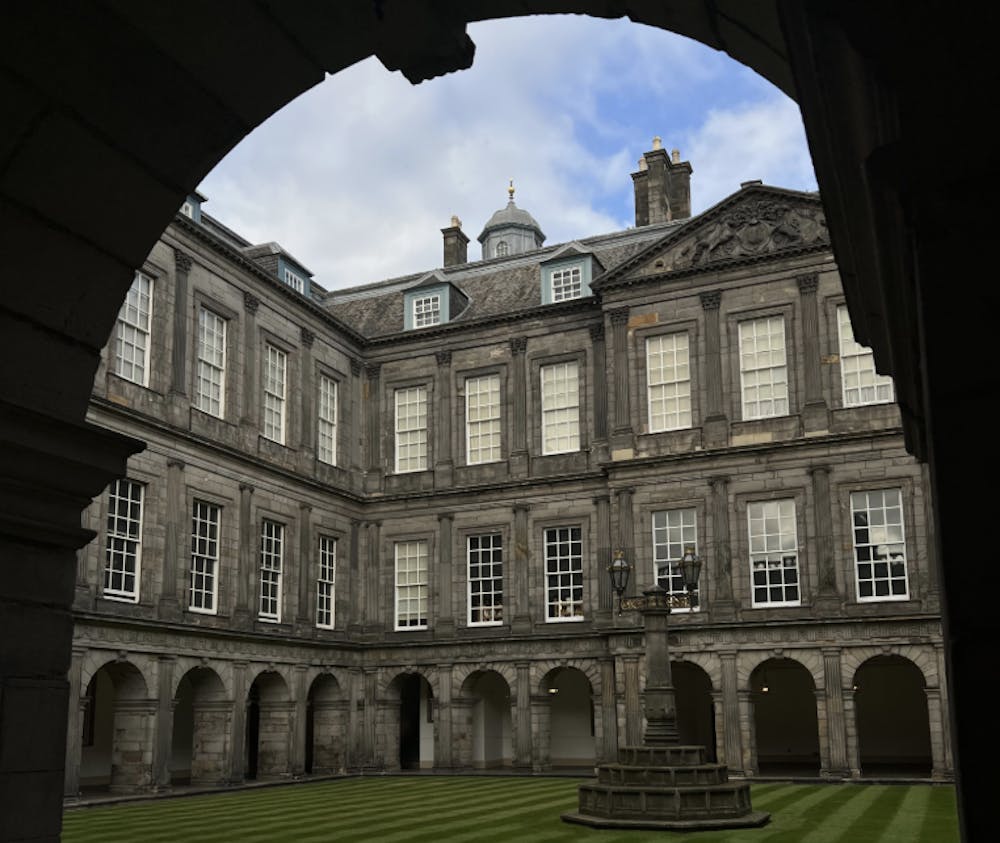
It’s been about a week since I packed up my suitcase and flew across the Atlantic to start my study abroad journey in St Andrews, Scotland. In the few days that I’ve been here, I’ve met a good bunch of American students who are studying something related to politics or diplomacy, and lots of English students who wouldn’t dare touch politics with a ten-foot pole.
Now, I didn’t connect the dots until I hopped into a taxi to head to the next town over. My taxi driver, Hamish, and I spent the entire 30-minute car ride talking, and at around the five-minute mark, he asked me, “What’re you studying?”
“International Relations and Political Science,” I said proudly.
Hamish responds, “What is it with you Americans and your obsession with politics?”
To say this statement threw me for a loop would be quite the understatement. Whenever I’m in the States and mention my area of study to someone, the response tends to be something along the lines of Oh, good — We need better people in politics, or That’s important work. This ultimately leaves me with a great sense of value and pride — as if I’m part of the change that the country needs to see.
Hamish, however, left me feeling deflated.
He continued on with, “I think that’s where American and Scottish people really differ because politics consumes an American’s every waking thought, while Scottish people don’t really pay too much mind to it. Obviously, we vote and have opinions on the system, but it’s not really a big part of our everyday lives.”
It was at this point in the conversation that I couldn’t help but agree with him, because it is true. But why?
In the U.S., likely every person has experienced the act of pledging allegiance to our flag or taking a dedicated Civics course in middle school. While secondary schools in the United Kingdom have a required “Citizenship” course in their curriculum, the notion of pledging allegiance to the flag is largely absent. This is to say that the idea of national pride and patriotism is injected into an American child’s life from very early on.
The attitude of needing to reinforce one’s loyalty to their country and be involved in politics may be partly due to the age of the United States. The United States only became a major independent power 250 years ago, whereas countries like England and Scotland have existed for almost 1,200 years. Throughout the War of Independence from 1775 to 1783, patriotism had become a life-or-death issue, with people needing to declare what side they were on.
It seems as though the same sentiments have largely remained ingrained in American culture ever since. Neutrality is rarely an option in American politics, which still frequently feels like a battlefield where allegiances must be declared. The extent to which politics permeates daily life is shaped by this legacy, which was born out of revolution and a never-ending need to define what it means to be “American.”
Scotland, on the other hand, has a different relationship with politics because of its lengthy and complex history. Here, centuries, not decades, are used to measure political change. Many Scots don't see politics as the main plot point, but rather as background noise. Political affiliation doesn't always determine one's sense of belonging in the same way it does across the Atlantic because their national identity has been created and reconstructed so many times through kingdoms, unions and parliaments.
In the brief time I’ve been here, I’ve noticed that difference. It seems like politics seeps its way into every conversation in the United States, whether you’re at a family dinner, browsing social media or standing in line at the grocery store. Here in Scotland, the talk isn’t about political structures so much as life’s ups and downs, people’s backgrounds and the general agreement that America has become the world’s favorite soap opera. Although politics is present in some conversations, it does not rule in the same oppressive manner.
Hamish’s question stuck with me because it made me realize something: studying politics overseas can broaden my understanding of governments and theories, while also changing the way I view my field of study. Studying political science and international studies at home feels like an obligation, as though I’m making a significant contribution to something vital and essential for the nation’s future. However, the topic takes on a different texture here in Scotland. Politics doesn’t have the same hold on everyday life, so my studies feel less like a duty and more like an intellectual curiosity — something fascinating to investigate rather than a heavy burden to bear.
The difference between these two nations has led me to wonder if we exaggerate the importance of politics in our own country. Every topic, no matter how minor, is pushed into a partisan debate in the United States, leaving little opportunity for nonpartisan thought. Politics is present here, but it doesn’t have the same impact on day-to-day existence. That contrast has made me question whether our persistent sense of urgency serves to keep us trapped in a cycle of polarization rather than enabling us to effectively solve problems.
Perhaps Hamish was right when he said that Americans are consumed by politics, and not always in a positive way.
Alyssa Gonzalez is a junior majoring in Political Science and International Studies. Her column approaches the political atmosphere through an individual lens, grounding the conversation in empathy and clarity in an attempt to humanize the field.





